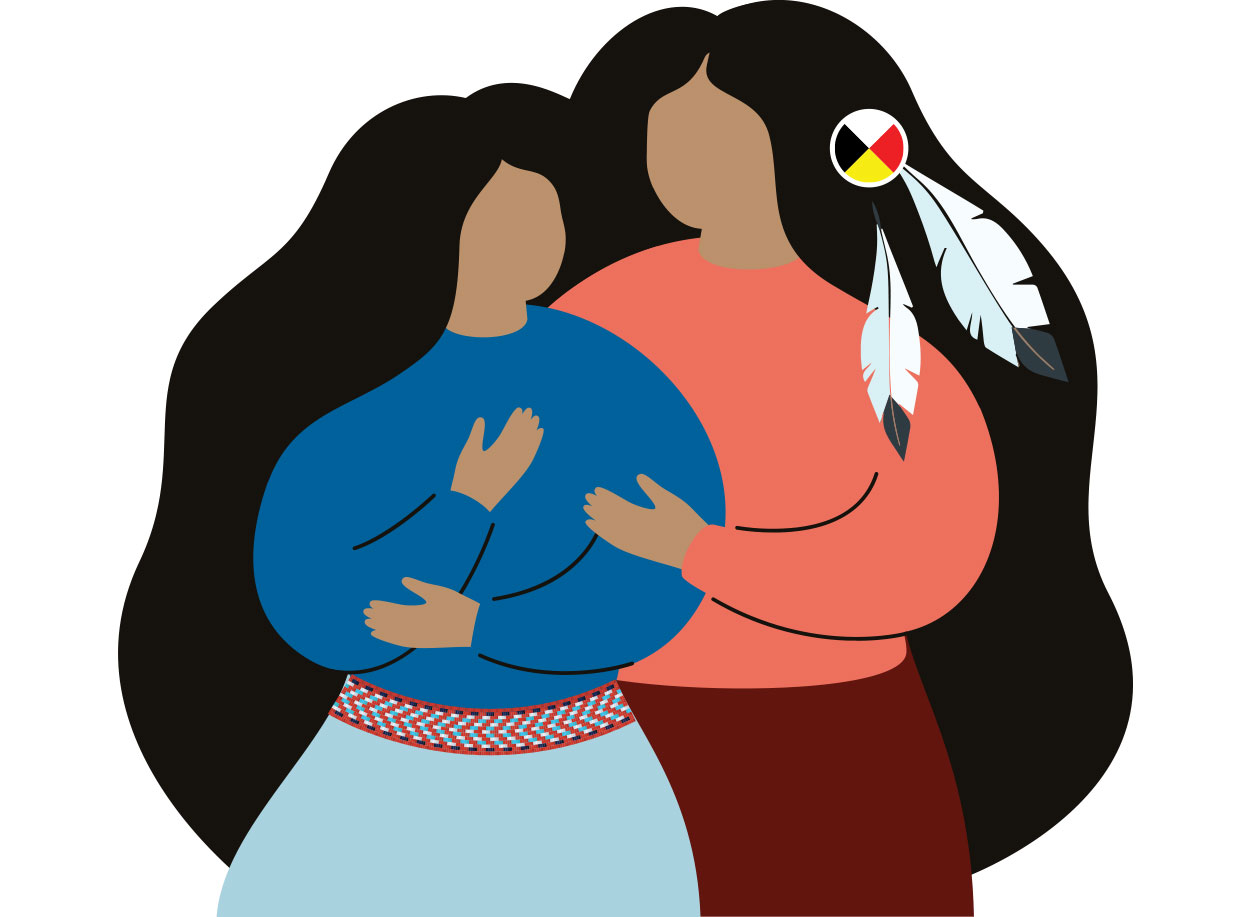Shining a Spotlight on STBBIs
This month, we are shining a spotlight on NWAC’s Sexually Transmitted and Blood-Borne Infections (STBBI) project.
The FNIHB STBBI project was born out of a need to respond to the fact that while Indigenous women and girls are highly over-represented among HIV cases and other STBBIs, most STBBI services are not designed with Indigenous women in mind. Mainstream services are often highly inaccessible and for individuals with histories of trauma such as sexual abuse, can be re-triggering. Given this knowledge, STBBI interventions for Indigenous women and girls need to be culturally relevant, gender-based, and trauma-informed.

We know that the vulnerability to STBBIs of Indigenous women and girls is intimately linked to a variety of health factors such as poverty, housing insecurity, mental health and addictions, adverse childhood experiences, racism, and unresolved intergenerational trauma as a result of colonialism and the legacy of the residential school system. STBBI interventions will have increased success when health care providers learn to address the possibility of traumas such as sexual abuse or violence, but only after building a trusting relationship.
The STBBI project aims to contribute to a reduction in the disproportionate rates of STBBIs in this population and advocate for the need for STBBI prevention, testing, treatment, and care to be culturally relevant and trauma-informed. The project involved developing culturally safe, gender-based, and trauma-informed STBBI fact sheets, a trauma-informed service provider fact sheet, and an STBBI workshop guide targeted to Indigenous women, girls, and gender-diverse people. The resources that were created throughout this project had a heavy focus on cultural safety and gender inclusivity.
There are so many interesting and rewarding parts of working on the STBBI project. If we had to pick one, it would be that over the last year, we’ve worked to develop a virtual Culturally Safe and Trauma Informed Knowledge Hub, which houses resources, information, and more relating to sexual and reproductive health.
Education is empowerment, and the Knowledge Hub aims to empower First Nations, Métis, and Inuit women, girls, and gender-diverse people with the knowledge they need to make informed decisions about issues that affect their sexual and reproductive health. An interactive virtual map points people in the direction of culturally safe and anti-oppressive services in their area.
Subscribe to our e-mail lists
Shining the Spotlight Newsletter is published monthly.